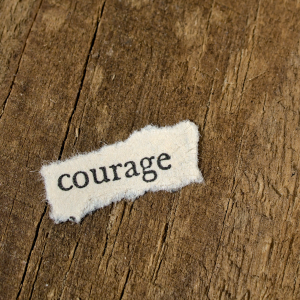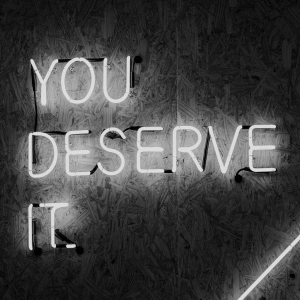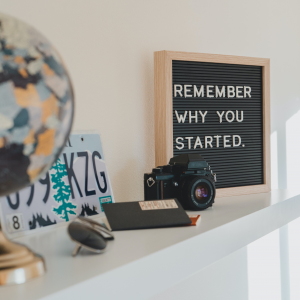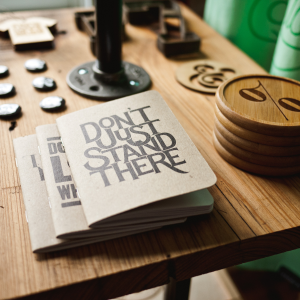In this episode, I talk about the problem with busyness and why your to-do list doesn’t need to rule your life.
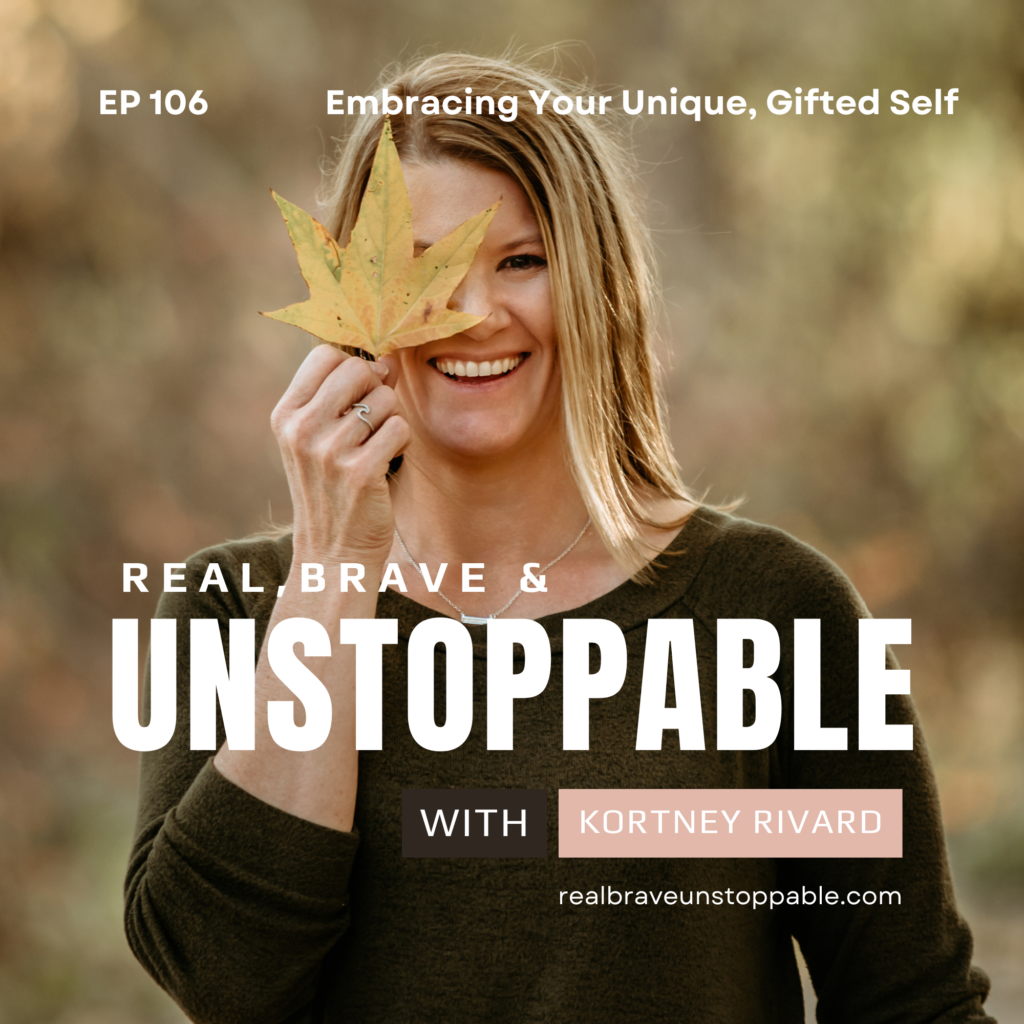



Show Notes:
Welcome to Episode #107 of Real, Brave, & Unstoppable: The Problem with Busyness!
In this episode, I talk about busyness – why we’re addicted to it, why it can be a problem, AND, why we do NOT have to be slaves to our to-do lists.
Listen on your favorite streaming platform, or right here on realbraveunstoppable.com.
Resources
How to Create the Life You Want FREE workbook
Click HERE
Schedule a Discovery Call …
…to learn how I can help YOU stop overthinking so you can reduce stress and anxiety, be more productive, AND bring more peace and joy into your life!
CLICK HERE
Support the show (https://www.buymeacoffee.com/kortneyrivard)
Other episodes:
- Ep 122: How to Take the High Road When People Say Mean Things About You
- Ep 121: 5 Ways to Make the Mirror Your Friend
- Ep 120: Getting Back on the Goals Bandwagon – Setting Better Goals
- Ep 119: Slow Down! How to Embrace Getting Still and Waiting Patiently
- How to Fix Your All-or-Nothing Thinking
The Real, Brave, & Unstoppable full episode catalog
Transcript:
Episode 107: The Problem with Busy-ness
Hey friends and welcome back to Real, Brave and Unstoppable. This is Thanksgiving week. It’s crazy. Right. I feel like I’m always commenting on how fast time goes, but seriously people, it is crazy. I can’t believe my daughter’s going to be 13. In. Just over a week. It’s crazy. My gosh, my son is about to graduate from college. My daughter’s going to be 13. Uh, do I ever feel old? But in the spirit of Thanksgiving, I’m super grateful. For being old. And all the great things that come along with aging. Right. We have to look at the positives there. Right? Never mind the fact that when I run my hip joints hurt, but it’s all good. Right? I always love Thanksgiving. It’s one of my favorite holidays, just because it’s like, It’s low-key. It feels low-key. We still kind of get to celebrate with people, although my partner and I usually end up just being by ourselves or kids with the kids. But still it’s just a low-key holiday. We get to celebrate with good food and good wine. And watch some football and just kinda chill out and just focus on what we’re grateful for. So this year, my kids, we alternate Thanksgiving with their dad and I, and so this year they’re with me. And then they’re with their dad over the weekend and my partner and I are going to key west for a long weekend. So I’ve never been there before. So I’m super excited to go and just first of all, just have a vacation. You know, to just chill out and have fun… looking forward to that. And I’ve never been to key west. So be fun to experience that. And we’re flying on black Friday. So funny. Does anyone go out and do the in-person shopping anymore on black Friday? I mean, I’m sure some of you do, I’m not one of those people, but, just the sort of approach of black Friday reminds me of the hustle and bustle of the holidays. And oof… normally I try to have like some shopping done before Thanksgiving and I have nothing done. I don’t even know and anything. I mean, we keep, Christmas, we celebrate Christmas, but we keep it pretty simple in my family. Which I love. Simplicity is one of my values. But still. There’s stuff to get done. And I don’t know. I feel like even if there isn’t really that much to get done, I feel just because it’s the holidays. Like in my head or in our heads, we kind of just feel like there should be a lot of things to get done. So… That’s a good segue into our topic for today… Busy-ness. I was coaching somebody last week about just her schedule and how much stuff she has on her plate. And really starting to look at like, do you want all that stuff on your plate and what, what things do you need to keep there and what things could go. I’m sort of looking at values and like what’s really important to you to help you, like decide. And it was really difficult for her to narrow those things down. And so I thought, oh, this is a great topic for this time of the year. Just being busy and, kind of what, what impact it has on your life. Is it, you know, positive, or negative, what can you do to sort of mitigate some of the stress that comes with being busy? Is it a habit, like, you know, all the things? So it’s interesting because like, I feel like today, In today’s society, busyness is just kind of the way. But humans haven’t always been busy. For thousands of years, humans lived in societies where time just wasn’t really you know, it was really fluid. It was measured by the sunrises, the sunsets, the seasons pass, you know, it was a very agricultural-based societies. So the day-to-day timing didn’t matter as much. It’s like the environment told the people what needed to get done. Timelines and hours didn’t really matter so much. So a funny thing about being busy is I really feel like society really values that. The busier we are, the more productive we are. The more successful we feel, we feel better about ourselves. Like busy can be a badge of honor. Like I’m important. And I have all these things to do. Look at me, I’m getting all these things done. I’m so productive. It can sort of be like, if we have any of the, I’m not enough stories going around in our heads. it can kind of be an antidote to that almost like I’m important because I’m getting all this stuff done. And so it becomes you know, something that feels the opposite of that story. If that makes sense. Sometimes we stay busy to avoid things. Maybe we want to avoid conflict. We want to avoid an argument with our partner. So, you know, they come home and we’re, we just, you know, head down we’re in our own stuff. Or maybe there are emotions we want to avoid like anxiety or, you know, stuff like that, where we try to go do things, keep our schedules busy, so we don’t really have to feel those difficult emotions. Kids get subjected to it. How many kids do you know, that are in so many activities that, so this contributes to both things, kids having to balance busy-ness, but also the parents having to get them to and from activities. So I mentioned the holidays. Holidays coming up, gifts, decorations, gatherings, parties, doing, doing, doing, busy, busy, busy. The stress goes up and it’s a hard time for so many people. And one thing that can be difficult if the December holidays are a difficult time for you anyway, because of like, I went through a separation around this time many years ago now, but, for a long time, this time of the year had so many memories that really made me depressed. And it really added to my stress because previously, I loved this time of the year. And it was one of my favorites and everyone around you is sort of like you’re supposed to be happy. And so it was hard for me because I felt like I should be enjoying it. I felt like I should be happy. So that brought a whole different type of stress to my life. So it, is because that season is upon us. I wanted to combine this episode to talk about busyness or slowing down, as you wrap up this year and look ahead to 2023. So, what are some of the disadvantages of being busy all the time? It’s pretty straightforward. Right. But being too busy is not healthy. Being too busy creates stress. And when you’re in a chronic stress response, it is not good for you. It’s useful in fight or flight, like when you’re in danger. But not when your body can’t get away from the stressor. So chronic stress happens when you can’t release that pent-up stress response. You just keep going with it. And what happens? Our bodies scream at us. With, you know, physical messages. Like, you know, you can’t sleep, you burn out, you get sick, you know, long-term damage to your body. Exhaustion. Headaches GI problems. So, yeah, stress causes a lot of problems. So what are some other disadvantages to busyness? Relationships suffer. If we’re so busy, we’re not present… even when we’re physically present and our relationships can lose, we can lose connection. You know, the worst is when we’re physically present but we’re mentally preoccupied with other things or we’re emotionally distant. Like if we’re worrying about work when we’re trying to spend time with our kids. It damages the connection. Others don’t feel seen or heard. I know my partner is commented before, when I’ve been really busy with work and with, you know, I’ll sit on my laptop at night while we’re all watching TV and he never feels like he can talk because I’m always so immersed in what I’m doing. So yeah, it’s sort of a, we get in that habit, and we kind of assume that people will just talk to us anyway if they want to talk to us. But then we’re doing something else or not really like listening and it just, yeah, it destroys connection. And also when we’re not present, we miss some really great moments in life. There’s a quote by John Kabat-Zinn that I really like. John Kabat-Zinn is like the Western world sort of father of mindfulness. The quote is, “saying yes to more things than we can actually manage to be present for, with integrity and ease of being is in effect saying no to all those things and people and places we have already said yes to.” So, yeah, it really sort of puts the important things on the back burner when we’re not present. And not being present or not being, you know, not having time to really be with the people in our lives or experience our lives even, has a lot of costs with it, right? We already talked about the health risks, but also, you know, you could wake up one day and realize your kids have grown up and you didn’t really participate, even though you were there, you didn’t really, really participate in their lives as fully as you could have. So regret. Regret is, a hard one to deal with. Maybe you realize, oh, I’ve been so busy, busy, busy that I never really achieved my dreams. And, you know, also when you’re so busy all the time, you’re not really checking in with what’s important to you. You’re not living authentically or in alignment with your values or who you really are. And that causes… drum roll…- the hamster wheel. So that’s another thing. When we’re busy all the time, we can feel like it’s Groundhog day, every day. We’re running on a hamster wheel. Because things feel the same. We’re not really taking the time to check in with reality- what’s going on in life. Our bodies, and other people. You know, we feel, we can feel kind of like a robot if we’re not careful. A couple of other things to note, too.. Well, I’m going to just address women. You know, women, we tend to kind of feel like we have to do everything. We feel like we can’t like, just have downtime. That’s sort of like a broad generalization. But typically that’s pretty common. It’s really hard for women to just spend time on ourselves. There’s always somebody to care for, or, you know, we’re caring, conscientious, nurturing. There’s always something on our minds. And high-achieving women too. Like, or maybe even if you’re not, if you don’t consider yourself a high achieving woman, but like not knowing how to shut off your mind, have to be busy. I can’t relax. And just be, cause you have a story that being busy doing the things, that means something important. And actually it busy can also be like a subconscious attempt to define ourselves when we’re not really sure who we are. You know, like busyness and success, that relationship like I’m, I’m busy. If I’m busy and I get all these things done, I’m a successful person. Where, you know, success might not, in the form that you’re equating it to a value, it might not actually be a value to you. So it’s really important to get present and really ask yourself what is important in your life. And I’m busy. It can actually also be a habit. A lot of people complain about being busy, too busy. I don’t have time for this, but don’t do anything about it. So, just watch yourself. Check in. If you find yourself saying I don’t have time, I’m too busy. Like really get curious about that. Is that actually true? And is there some prioritizing that you can do to be more in alignment with, you know, what you value in life? What do you value in life? Super important words right there. So we’re going to talk about values and how knowing your values and really living true to your values can really help you with this busyness thing. And sort of helps you bring a little more balance into your life when it comes to all the things that you feel like you need to get done. So what are values exactly? Values are life directions or ways of being that we personally choose. And they can act as an inner compass or a sort of our true north. They help us identify what’s important to us and then act on it. Rather than just being reactive and following our thoughts and feelings at any time. Well, let’s face it. We all have a lot of responsibilities. We’ve got work. We’ve got family. We’ve got, you know, the relationships. You’ve got, you know, fun, all the things that add up. Right. And then in our day-to-day life there with all those demands, it’s really easy for things to just pile up and for us to lose sight of what is really important. It takes presence to stop and check in and do that. And our actions can be driven by our feelings. Or old habits. So when you take on something new, maybe you have a people-pleasing mentality or pattern. And so, you know, you’re driven by your fear of people judging you, if you say no. And so immediately you just take on that volunteer at school opportunity, even though you don’t really have time for it. And maybe you don’t even want to do it, but your emotion in the moment of fear of judgment causes you to say yes. So a couple of things to note about values is that first of all, and this is very important that they’re not goals. Goals are something that you can achieve or obtain and values are not values are, like I said before, they’re like you choose them. They’re like life directions or ways of being. So in choosing your values. You decide, and you get to decide how you want to be or act in your life. That’s up to you. So some examples of words or phrases that represent values. I do this exercise with clients a lot where it really just involves going through a list of words that represent potential values and circling ones that resonate for you and just narrowing the list down until you get to like three. Maybe five. And there are other ways to do it to that sort of, you know, ask you to go a little deeper and answer some deeper questions. But I usually start there with that list. Usually, people can kind of come to them that way. But some examples of values might be curious or, family-focused or, you know, energetic. Resilience. Maybe kindness. So those are some examples and then to take it a step further, sometimes it can be helpful to look at values in different contexts. Different areas of your life. Because they’re not, they might not all translate. Like, you know, a value in the family might not translate to a value in health and wellness. Health and fitness. Other areas of life you can consider are your career relationships, Finances, and things like that. You can, you can kind of break it down if that’s helpful. But the idea is that you want to have like some words or phrases that really sum up what’s important to you in your life. So for example, If one of your values is presence or mindful presence or, you know, being present. And you find yourself every night after dinner sitting on the couch, scrolling through Facebook, just kind of mindlessly numbing out, and your kids are trying to get your attention and they’re talking to, but you’re not really hearing what they’re saying, that’s a clash with a value. Here’s another example. If one of your values is peacefulness or calm. And you have a busy schedule and somebody asks you to volunteer for a really big thing at school, like to run you know, like the eighth grade. I don’t know, fundraisers for the year or something, whatever it is, that’s big. And it’s going to take a lot of time. And you know, that adding that to your plate is gonna make you feel stressed. You can check in and say, well, one of my values is peacefulness and calm. That clashes with that value. If I take this on, I am not going to feel peaceful and calm. So I’m not going to be honoring that value. So those are a few examples of what values are. Now. How do you honor them? That can be tricky. I’m going to just give you a few ideas, but one of them is, to be present. Be present, slow down and breathe. Just recognize that in this moment, you have a choice. You know, just slow down, breathe, take it all in. And know that. Being present and like just neurotic busy-ness can’t. They don’t work together. They can’t be together at the same time. So when you’re present, you’re not busy. Right. So that’s a really good way to kind of just stop. And that’s a good practice too. And people are like, well, I don’t have time to, I don’t like meditating and it’s, it doesn’t have to be meditating. Big secret. Doesn’t have to be meditating. You can, you know, mindfully take a walk or you can just, as you’re sitting eating dinner, you can just really you know, taste every bite or notice how it feels in your mouth, your food feels in your mouth, or, you know, maybe you just stop to take some breaths and tune into what you’re feeling in your body. Those are all ways to be mindful. And it’s a really good practice because when you can practice that presence, it helps you when you have to make a decision based on your values because you can just stop and be aware of what’s coming up for you. Another thing that I really want to kind of drive home is the concept of being a victim to your schedule or your to-do list. A lot of people complain about being busy, but when it comes to doing something about it, they, don’t, they don’t do anything to change it. And you’re never going to break out of that pattern unless you make the conscious decision that you want to break out of that pattern. And values can really help you do that. But the part that I really want to drive home is that we all have choices, right? And so we all get to decide when something gets added to our list of things that need to get done. Or things we should do or whatever. We have the choice to put it there or not. And it’s as simple as that, okay. So it doesn’t mean that it, you know, it’s easy to say no to people but it does it doesn’t change the fact that we do have a choice and then we just have to manage the emotions that come with making that choice. And earlier I mentioned sort of the badge of honor that busyness carries in our society these days. And zig Ziglar the famous sales. Uh, mentor… he says don’t confuse activity for accomplishment. So good. So, this is one of the things that with corporate America today, low, some, some companies it’s like… I had a job a few years ago. That was like, you need to put your button, your seat from this time to this time. And you have to do you have to just be there. And there are a lot of times when I’d get what I needed to get done done, but I had to just sit there and makeup stuff to do. So I was focused on the time spent. Right. And most, most jobs are to be honest, not all, but instead focus on the results of what you’re doing. What are you creating? What’s coming out of your time spent? Don’t focus on just being busy all the time. Focus on the quality of the work you’re getting from what you’re doing. And your values will kind of help you determine that too. You can check in with that. Is this in alignment is the time I’m spending or is the result I’m getting in alignment with what I value? A couple of other things that aren’t really necessarily related to values directly, but the first one is sleep. Watch your sleep. Better sleep helps you be more productive. So you can finish things on your list of what you need to do faster. And you also might not feel so frazzled. So another thing too, is really thinking about what needs to be done first. What is, you know, and this goes with what’s really most important right now. And I also want to be clear that sure, there are some things that get added to our list that, you know, Needed to get done. They just their responsibility, but that also ties into a value. So for example, if at work you have, uh, something on your to-do list that has to get done… chances are, you know, you value job security or you value your job. So doing it is going to be important to you because of that. But do what you need to do first. Don’t put pressure on yourself to respond to everyone right away, unless it’s an emergency. You know, it can wait. I read somewhere… this is so good. Your inbox is a to-do list for other people. Not yourself. And I don’t know about you, but your email inbox can easily lead it can for me, at least -lead me down rabbit holes, unimportant tasks. So, I mean, even limiting, checking your email is a good thing to do. That’s tough, but it’s a good idea. Focus on what the next right thing to do is. And, you know, Kind of, you know, to sum it all up really, I think it’s two things it’s know what’s important. And then just come back to the present moment. You know, being busy for the sake of being busy, it stems from fear. What’s going to happen if I don’t get this done? Look at what’s really important. What’s really necessary? And, you know, you can do that if you just relax into the moment you have now. And listen to your intuition too. Is this important to me? Does this align? Quit choosing busy. Let’s start choosing what you love. Or what’s important to you? And then just a couple of practical things for you to think about like exercise-type things to do. Again, do the values exercise. If you want to. I have a worksheet. If you want to just email me. I can send it to you. And then I read something by a gentleman named mark Whitman. Whitman, I think probably cause he said, German psychologist, About time and self being intertwined. He said, the more you give yourself the gift of time, the better you get to know yourself. And the better you get to know yourself. No, this is my own inference here, but… the better you get to know yourself, the better you know what’s important to you. So that’s kind of important too, is just to make sure you do give yourself some time to know yourself and to be with yourself. I mentioned mindfulness practice. It’s really a good idea to have some kind of mindfulness practice and it doesn’t have to be complicated. You know, it just gives you a chance to sit and observe what is happening around you in your body and your emotions and your thoughts. You know, just observe what happens. And actually, a great idea is when you have the urge to like, just do things, be busy, just stop and notice what’s going on. Is being busy a way of coping with something? What emotions are coming up to cause you to want to be busy? Another thing with mindfulness is really making a point to be present with the people in your life. You know, make a point that when they’re talking to you, that you listen. And, you know, if you’re really in the middle of something, you can stop and say, Hey, I need to finish this. And I want to be able to hear you fully. So just give me like five minutes. Like you can do that. And if they have an emergency, they’ll let you know. Or that, and that’s up to them, right? Um, and then finally, go through your list of things you need to do your monstrous to-do lists and ask yourself, does it really need to get done? And why, if so, why? Why does it need to get done and does it really need to get done now? And if so, why does it really need to get done now? And also look at cost benefits. What’s the cost of doing it for you? What’s the benefit of doing it? what’s the cost or benefit to not doing it? So those are some things that, you know, you can really think about, especially, you know, get time to think about it now, as now, when you’re rolling into the holiday season, busy-ness. And, you know, this practice of being present, mindfulness, knowing what’s important to you is also a really, it’s a good time to practice it because in the new year, you know, everybody makes their new year’s goals or resolutions or whatever. And presence, mindfulness, and knowing what’s important to you is going to set you up for the next thing I’m going to bring to you, which is in January. A free five-day challenge around setting soulful goals. I did this challenge last year. And I’m also going to be offering a group program where, you know, we’ll do that work together. We’ll meet weekly, we’ll have accountability and support, and fun while we set goals that are based on what’s really important to us. Our values and how we want to feel also. So with that, practice that now, and watch for information on the, uh, the challenge in January and the group program that will be coming later in January. All right. My friends, I will see you soon.


